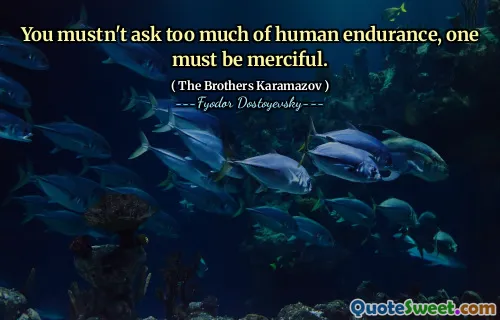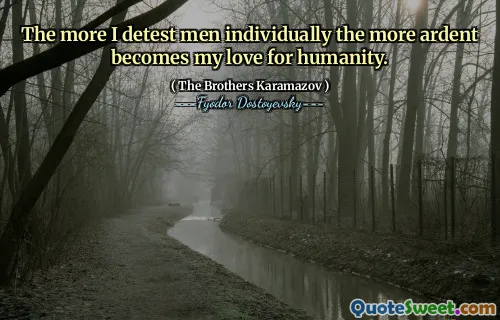
But instead of delight his soul was filled with such gloom, and his heart ached with such anguish, as he had never known in his life before... "I am base" he whispered to himself.
This quote delves into the profound inner turmoil of an individual grappling with feelings of shame, guilt, and self-condemnation. The imagery of a soul overwhelmed by gloom and a heart aching with unprecedented anguish illustrates a moment of deep emotional crisis, where internal struggles threaten to consume the individual's sense of self. Such intense introspection often occurs when one confronts their perceived moral failings or the realization of their own shortcomings. The whisper "I am base" reveals a moment of humility or self-accusation that signifies not just shame but also an acknowledgment of perceived moral weakness. This inner dialogue evokes themes of guilt and self-awareness that are central to human psychology and existential reflection. It underscores how internal moral conflicts can evoke feelings of despair and self-reproach, especially when an individual perceives their actions or nature as fundamentally flawed. This emotional state might stem from a sense of alienation or the acknowledgment of moral failure, forcing personified self-judgment that can be both humbling and demoralizing. Such moments are crucial in literature, as they often catalyze transformation, prompting characters to seek redemption or reconcile with their conscience. The raw honesty in whispering one's guilt signifies a fragile moment of vulnerability, emphasizing the complex human experience of moral self-assessment. These internal struggles are universal, resonating with anyone who grapples with guilt or self-doubt, and serve as a reminder of the human capacity for introspection, shame, and ultimately, hope for redemption.











